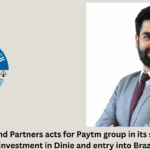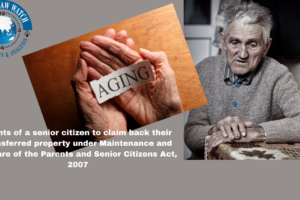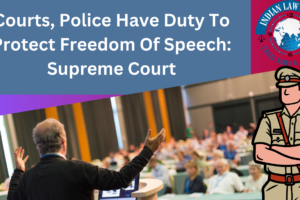The court also answered all questions of law in the case in favour of Tata Sons, ruling that Tata Sons’ actions did not amount to mismanagement or oppression of minority shareholders.
The Supreme Court on Friday set aside a tribunal’s 2019 order reinstating Cyrus Mistry as the executive chairman of the over $100 billion Tata Sons.
Three years after Cyrus Pallonji Mistry was removed from the post of Executive Chairman of Tata Sons, the National Company Law Appellate Tribunal (NCLAT) ruled the decision “illegal”, paving the way for his reinstatement.
The tribunal’s ruling came on a plea by Mr Mistry challenging his sudden removal from the post of ‘Executive Chairman’ pursuant to a decision of the Board of Directors of the ‘Tata Sons Limited’.
It also barred Tata Sons from invoking its power under Article 75, which empowers the ‘Tata Sons Limited’ at any time to transfer ‘ordinary shares of any of the shareholders without following the normal procedure of transfer, against Mr Mistry and other minority members.
Shapoorji Pallonji Group is in business with Tata Group i.e.— ‘Sir Dorabji Tata Trust’ and ‘Sir Ratan Tata Trust’ for more than four decades. Earlier Mr Pallonji Shapoorji Mistry, father of Mr Cyrus Pallonji Mistry, was appointed as the Executive Chairman of the Tata Sons.

The court also answered all questions of law in the case in favour of Tata Sons, ruling that Tata Sons’ actions did not amount to mismanagement or oppression of minority shareholders. It also denied the Sharpoorji Pallonji (SP) group, which has an 18.37% stake in Tata Sons, proportionate representation reflecting its shareholding in the company. The court said it was for Tata Sons and Mistry and his group to work out terms for separation, and declined to put a number to Shapoorji Pallonji group’s holding in Tata Sons.
While delivering the verdict the court listed the questions it had to decide on;
- Whether the NCLAT order, including reinstatement of Mistry on the Tata Sons and group company boards, is in consonance with provisions of Section 242?
- Whether the characterisation by the tribunal of the affirmative voting rights as oppressive are justified?
- Whether the tribunal could have granted a direction to Ratan Tata and the nominee directors virtually nullifying the effect of these articles?
- Whether the reconversion of Tata Sons (from public to private company) acquired the necessary approvals?
The Supreme Court on Friday ruled completely in favour of multi-billion salt-to-software conglomerate, Tata Sons Private Limited, by setting aside a National Company Law Appellate Tribunal (NCLAT) decision to reinstate minority shareholder Shapoorji Pallonji group’s scion, Cyrus Mistry, as its Executive Chairman.
As pointed out at the beginning of chapter 7, NCLT dealt with every one of the allegations of oppression and mismanagement and recorded reasoned findings. But NCLAT, despite being a final court of facts, did not deal with the allegations one by one nor did the NCLAT render any opinion on the correctness or otherwise of the findings recorded by NCLT. Instead, the NCLAT summarised in one paragraph, namely paragraph 183, its conclusion on some of the allegations, without any kind of reasoning.
Mr Mistry was initially only removed from the post of Executive Chairman of Tata Sons. However, his subsequent actions, including the leaking of confidential mail to the media to create a “sensation” and passing on information to the Income Tax authorities while claiming to be a “law-abiding citizen”, was an open declaration of “all-out war” against the Tatas. These led to his removal as a Director, the court said.
Therefore, there is no escape from the conclusion that NCLAT did not expressly overturn the findings of facts recorded by NCLT, on these allegations.
“16.33. Cyrus Pallonji Mistry himself invited trouble,” a three-judge Bench led by Chief Justice of India Sharad A. Bobde declared in a 282-page judgment.
Para 16.25 page 154 of the judgement-
“A person who tries to set his own house on fire for not getting what he perceives as legitimately due to him does not deserve to continue as part of any decision-making body”.
The court dismissed allegations by Mr Mistry’s side of oppression of minority shareholders like Shapoorji Pallonji (SP) group by the Tatas, who hold the majority stake. SP group holds 18.37% shares.
The court said on contentions by Mr Mistry’s contention that the “oppressive” regime of Mr Ratan Tata had led to bad business decisions for almost a decade.
Para 17.14 page 188 of the judgement-
“It is interesting to note that at the time of his appointment in December 2012, what Mistry saw and acknowledged, was a ‘great learning experience he had under the direct guidance of Ratan N. Tata’, but at the time of departure in October 2016, what he saw was only a conduct for over 10 years, that was oppressive and prejudicial to the interests of the company and of the minority…” .
The apex court dismissed the NCLAT’s observations that affairs inside Tata Sons were so “prejudicial and oppressive” that the company deserved to be wound up.
“Tata Sons is a principal investment holding company, of which the majority shareholding is with philanthropic Trusts… NCLAT should have raised the most fundamental question whether it would be equitable to wind up the company and thereby starve to death those charitable Trusts, especially on the basis of uncharitable allegations of oppressive and prejudicial conduct,” Chief Justice Bobde said.
The court also upheld the votive rights of the nominee Directors on the Board. It said these same nominees, now accused of prejudice by Mr Mistry, had named him Mr Tata’s successor.
With the coming into force of the Companies Act, 2013, the law has moved from ‘corporate majority’ or ‘Corporate democracy’ to ‘corporate governance, which includes the principles of fairness. This is seen from sections 135, 148, 151, 166 and 177. Law now enjoins companies to be operated and managed within a statutory framework i.e. by a Board of Directors and no one else, as per s.149 of the 2013 Act.
“NCLAT appears to have granted the relief of reinstatement gratis without any foundation in pleadings, without any prayer and without any basis in law,” Chief Justice Bobde stated.
The court said the NCLAT was acting well outside its jurisdiction to “mute” TATA Sons’ power under Article 75 of the Articles of Association to purchase the shares of any shareholder at a fair market price.
“The order of NCLAT tinkering with the power available under Article 75 is wholly unsustainable… Article 75 was not an invention of the recent origin in Tata Sons. It has been there for nearly a century in one form or the other,” Chief Justice Bobde said. [Para 18.11 page 206 of the judgement]
However, the court said the SP Group, after criticising Article 75, now depends on the same provision for an “exit option” from the Tatas [Para 21.4 page 281 of the judgement]. The court said the valuation of shares of SP group depends on the value of the stakes of Tata Sons. The court left it to Tatas and SP group to reach a fair compensation on the latter’s shares either by taking the Article 75 route [Para 21.4 page 281 of the judgement] or by any other legal means.
Finally, the Court said that:-
At this stage that Article 75 of the Articles of Association is nothing but a provision for an exit option (though one may think of it as an expulsion option). After attacking Article 75 before NCLT, the S.P. Group cannot ask this Court to go into the question of fixation of fair value compensation for exercising an exit option. What is pleaded in Paragraph 72 of the application for separation of ownership interests, require adjudication on facts, of various items. The valuation of the shares of S.P. Group depends upon the value of the stake of Tata Sons in listed equities, unlisted equities, immovable assets etc., and also perhaps the funds raised by SP group on the security/pledge of these shares. Therefore, at this stage and in this Court, we cannot adjudicate on the fair compensation. We will leave it to the parties to take the Article 75 route or any other legally available route in this regard.
Image Curtsey: Family Tree of TATAs
ABOUT THE AUTHOR SANJAY CHAVRE Mechical Engineer with MBA; LL.B ( First Semester) in Maharshi University of Information Technology, Maharshi Law School , NOIDA. He retired in Aug 2020 as Senior Development Officer in Ministry of Heavy Industry, Govt of India . Previously he was in charge of investment promotion and international cooperation between Europe and India in the Ministry of Industry and Commerce. Mr. Chavre has more than 37 years of work experience in the Government mostly in technology/ industrial development and promotion. He has been focal in raising institutions of industrial infrastructure and technology development in diverse fields like locks, stones, machine tools, auto components, tool rooms, Environment management facilities, quality & productivity improvement, manufacturing technology etc.









 SC rejects ADR plea seeking stay on Issuance of Electoral bonds ahead of Assembly Elections
SC rejects ADR plea seeking stay on Issuance of Electoral bonds ahead of Assembly Elections


